
Henry John Deutschendorf Jr., known professionally as John Denver, was an American singer and songwriter. He was one of the most popular acoustic artists of the 1970s and one of the bestselling artists in that decade. AllMusic has called Denver "among the most beloved entertainers of his era".
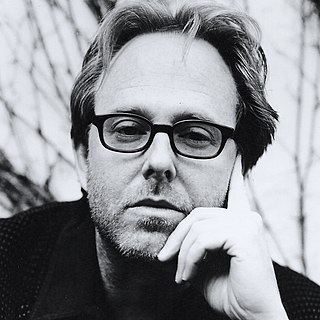
Richard Wright Nowels Jr. is an American songwriter, record producer, multi-instrumentalist and arranger. He has co-written and co-produced over 90 hit singles with multiple artists and albums his songs have appeared on have sold over 250 million copies. In 2020, he was inducted into the Songwriters Hall of Fame.

"Jealous Guy" is a song written and originally recorded by the English rock musician John Lennon from his second studio album Imagine (1971). Not released as a single during Lennon's lifetime, it became an international hit in a version by Roxy Music issued in early 1981; this version reached #1 in the UK and Australia, and was a top 10 hit in several European countries. Lennon's own version was subsequently issued as a single, and charted in the US and UK.
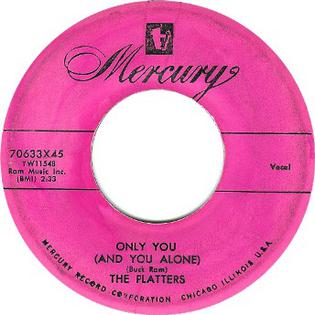
"Only You (And You Alone)" (often shortened to "Only You") is a pop song composed by Buck Ram. It was originally recorded by The Platters with lead vocals by Tony Williams in 1955.

Gregory Joel Abbott is an American singer, musician, composer and producer. Although he continues to record to date, he is best known for his singles in the mid-1980s including his platinum single, "Shake You Down", from his 1986 debut album.

"Hush" is a song written by American composer and musician Joe South, for recording artist Billy Joe Royal. The song was later covered by Somebody's Image in 1967. Their version reached #14 in Australia. It was also covered by Deep Purple in 1968 and by Kula Shaker in 1997. Each artist had a Top 5 hit with their version.

"Time of the Season" is a song by the British rock band the Zombies, featured on their 1968 album Odessey and Oracle. It was written by keyboard player Rod Argent and recorded at Abbey Road Studios in September 1967. Over a year after its original release, the track became a surprise hit in the United States, rising to number three on the Billboard Hot 100 and number one on the Cashbox chart. It has become one of the Zombies' most popular and recognizable songs, and an iconic hit of 1960s psychedelia.

"Proud Mary" is a song by American rock band Creedence Clearwater Revival, written by vocalist and lead guitarist John Fogerty. It was released as a single in January 1969 by Fantasy Records and on the band's second studio album, Bayou Country. The song became a major hit in the United States, peaking at No. 2 on the Billboard Hot 100 in March 1969, the first of five singles to peak at No. 2 for the group.

"Eloise" is a song first released in 1968 on the MGM label. It was sung by Barry Ryan, and written by his twin brother Paul Ryan. Running for over five minutes, it features strong orchestration, melodramatic vocals, and a brief slow interlude. It sold three million copies worldwide, and reached No. 2 in the UK Singles Chart as published by Record Retailer, but hit No. 1 in the NME and Melody Maker charts. It topped the chart in 17 countries, including Italy, the Netherlands and Australia.

"Leaving on a Jet Plane" is a song written and recorded by American singer-songwriter John Denver in 1966, originally included on his debut demo recording John Denver Sings as "Babe I Hate to Go". He made several copies and gave them out as presents for Christmas of that year. Denver's then-producer Milt Okun convinced him to change the title; it was renamed "Leaving on a Jet Plane" in 1967.
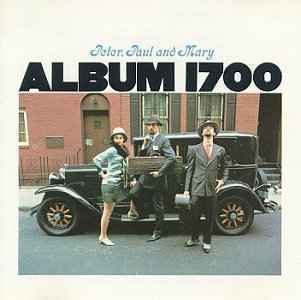
Album 1700 is the seventh studio album by American folk music trio Peter, Paul and Mary, released in 1967. It produced the band's most successful and final hit, a recording of the John Denver song "Leaving on a Jet Plane". The album peaked at number 15 on Billboard magazine's Top LP chart and was nominated for a Grammy Award in the Best Folk Performance category. Album 1700 was so named because its original LP issue was Warner Bros. Records catalog number W-1700 for the mono version and WS-1700 for the stereo version. It stayed on the charts and rose again in 1969, thanks to the single release of "Leaving on a Jet Plane".

"Stay" is a doo-wop song written by Maurice Williams and first recorded in 1960 by Williams with his group the Zodiacs. Commercially successful versions were later also issued by the Hollies, the Four Seasons and Jackson Browne.

"I'll See You in My Dreams" is a popular song and jazz standard, composed by Isham Jones, with lyrics by Gus Kahn, and published in 1924. It was recorded on December 4 that year, by Isham Jones conducting Ray Miller's Orchestra. Released on Brunswick Records, it charted for 16 weeks during 1925, spending seven weeks at number 1 in the United States. Other popular versions in 1925 were by Marion Harris; Paul Whiteman; Ford & Glenn; and Lewis James; with three of these four reaching the Top 10.

"I'll Get By (As Long as I Have You)" is a popular song with music by Fred E. Ahlert and lyrics by Roy Turk that was published in 1928. Versions by Nick Lucas, Aileen Stanley and, most successfully, Ruth Etting, all charted in America in 1929.
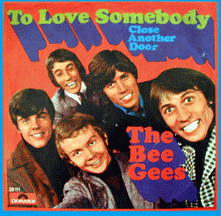
"To Love Somebody" is a song written by Barry and Robin Gibb. Produced by Robert Stigwood, it was the second single released by the Bee Gees from their international debut album, Bee Gees 1st, in 1967. The single reached No. 17 in the United States and No. 41 in the United Kingdom. The song's B-side was "Close Another Door". The single was reissued in 1980 on RSO Records with "How Can You Mend a Broken Heart" as its flipside. The song ranked at number 94 on NME magazine's "100 Best Tracks of the Sixties". The entry was a minor hit in France but reached the top 10 in Canada.
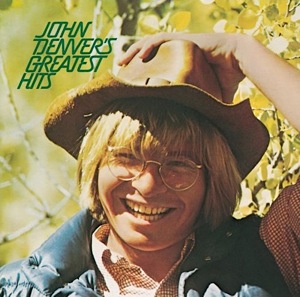
John Denver's Greatest Hits is the first greatest hits album by American singer-songwriter John Denver, released in November 1973 by RCA Records. A version known as The Best of John Denver with the same track listing was released in some countries.

"It's a Party" is a song by American rapper Busta Rhymes featuring American R&B duo Zhané. It was released as the second single from Rhymes' debut studio album The Coming on June 4, 1996, by Flipmode Entertainment and Elektra Records. The song was written by Rhymes and Zhané member Rene Neufville, and produced by Easy Mo Bee. Peaking at number 52 on the US Billboard Hot 100, it was a moderate success. The song was released as a double A-side single with several remixes and the album cut "Ill Vibe" featuring fellow rapper Q-Tip, which also appears on The Coming, as its B-side.
"Feelin' Alright?", also known as "Feeling Alright", is a song written by Dave Mason of the English rock band Traffic for their eponymous 1968 album Traffic. It was also released as a single, and failed to chart in both the UK and the US, but it did reach a bubbling under position of #123 on the Billboard Hot 100. Joe Cocker performed a more popular rendition of the song that did chart in the U.S. Both Traffic's and Cocker's versions appear in the 2012 movie Flight. The song was also featured in the 2000 film Duets, sung by Huey Lewis.
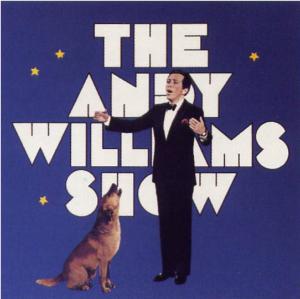
The Andy Williams Show is the twenty-sixth studio album by American pop singer Andy Williams that was released in the fall of 1970 by Columbia Records. In his review on AllMusic.com, William Ruhlmann writes that "The Andy Williams Show LP was not a soundtrack recording from the TV series, and it was not really a live album, although it gets categorized as such. What appears to be the case is that Columbia Records took a group of Williams' studio recordings, most of them made during the summer of 1970 and consisting of his versions of recent soft rock hits, and added a lot of canned applause along with some of the kind of musical interludes used to usher numbers on and off on the show, including bits of its "Moon River" theme music at the start and the finish."
"Trains and Boats and Planes" is a song written by composer Burt Bacharach and lyricist Hal David. Hit versions were recorded by Bacharach in 1965, by Billy J. Kramer and the Dakotas in the same year, and by Dionne Warwick in 1966.


















